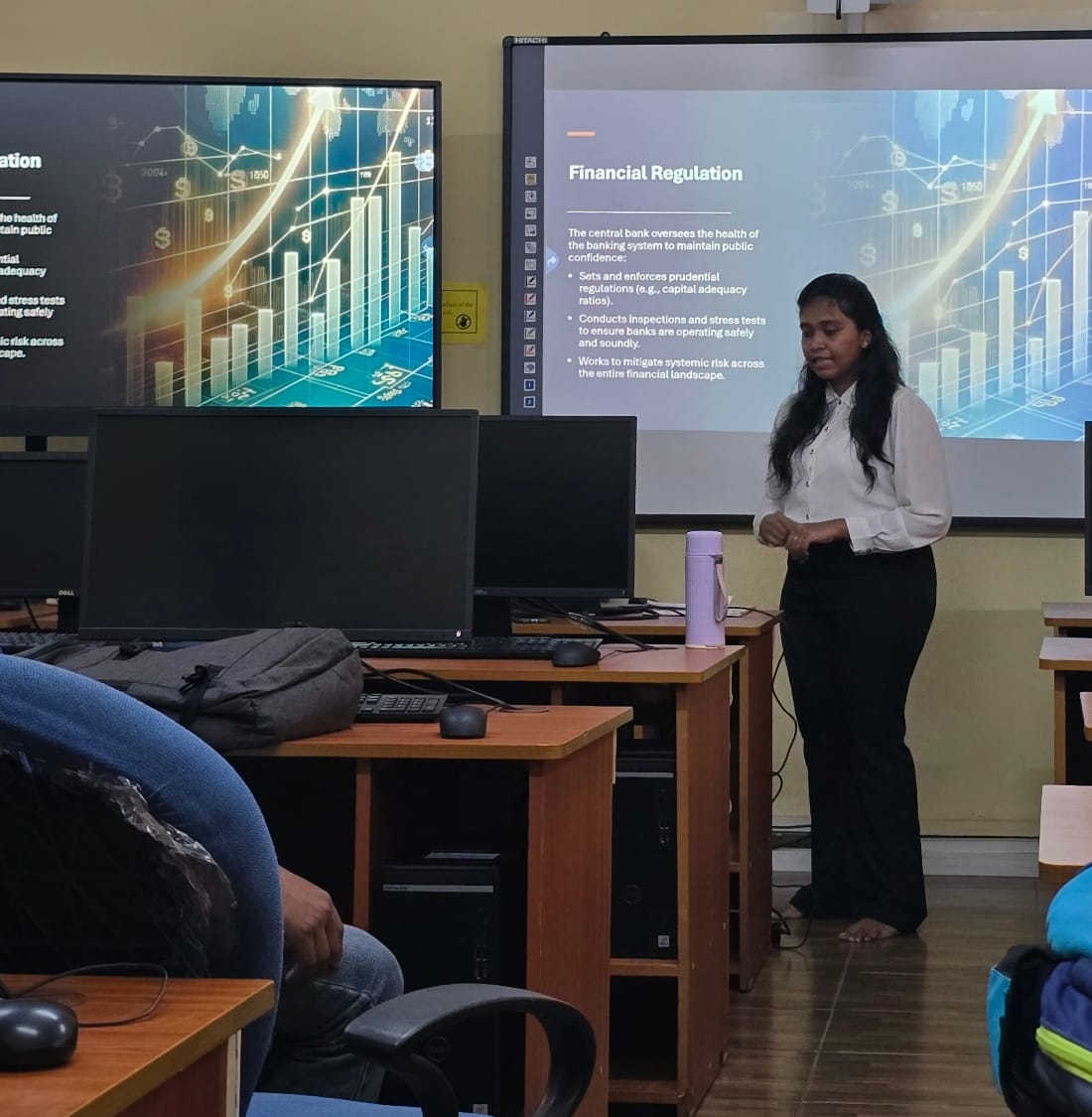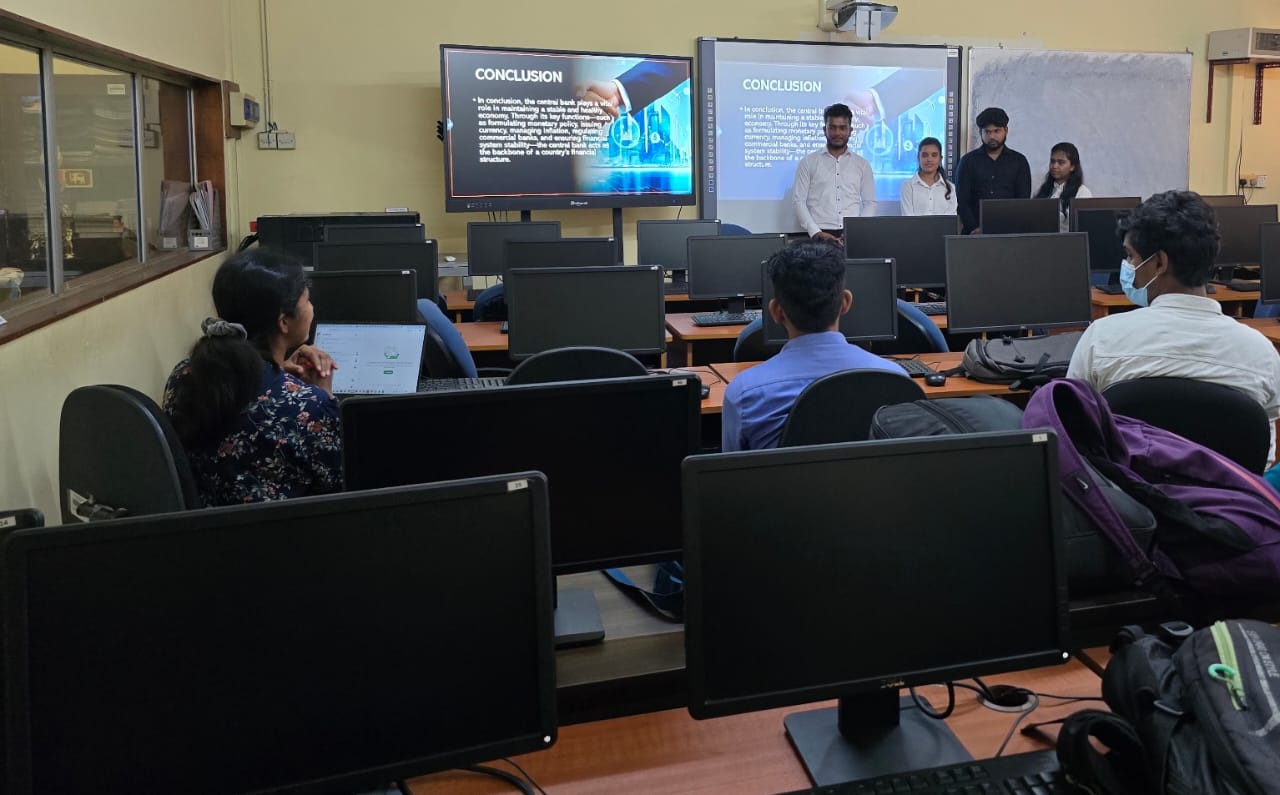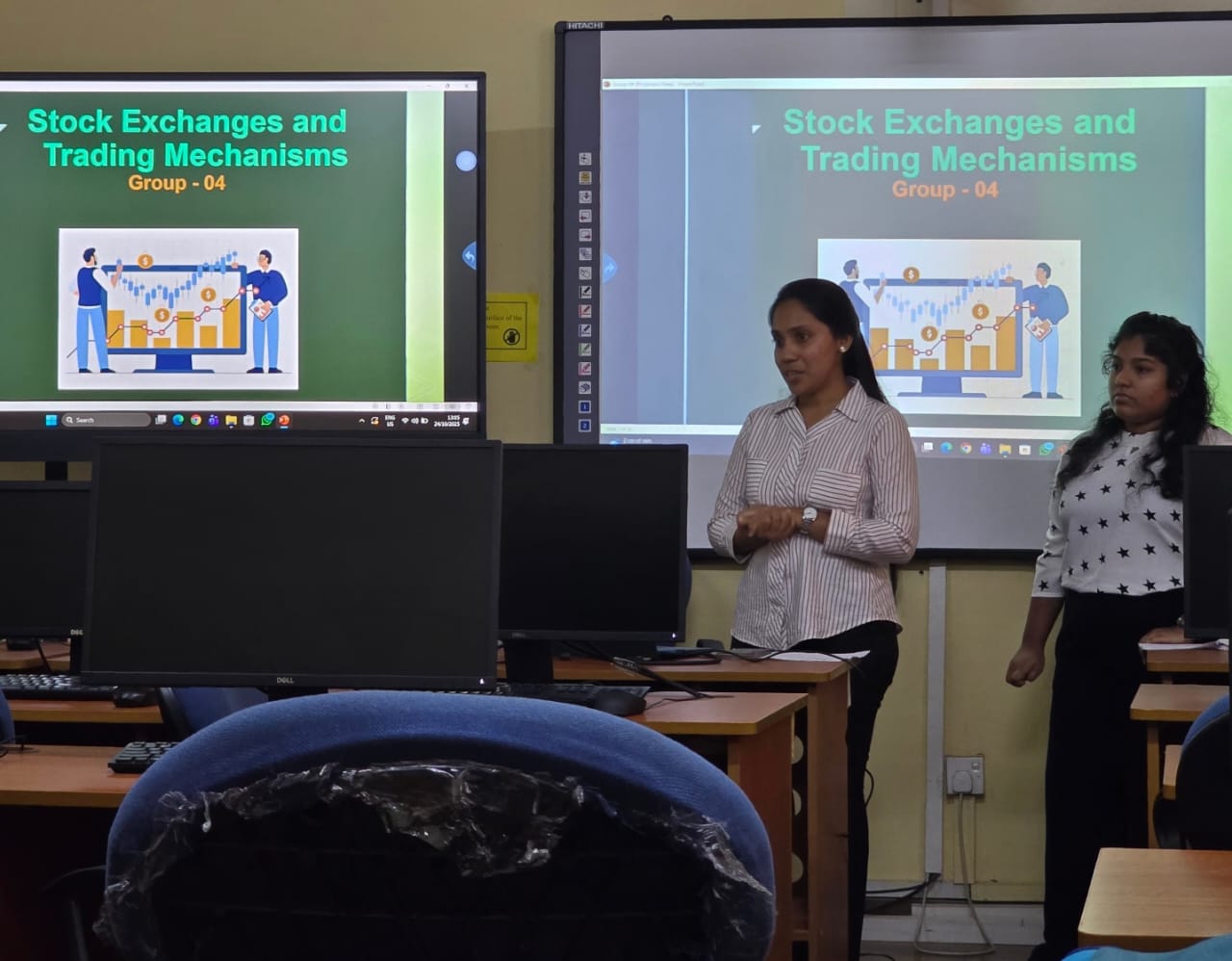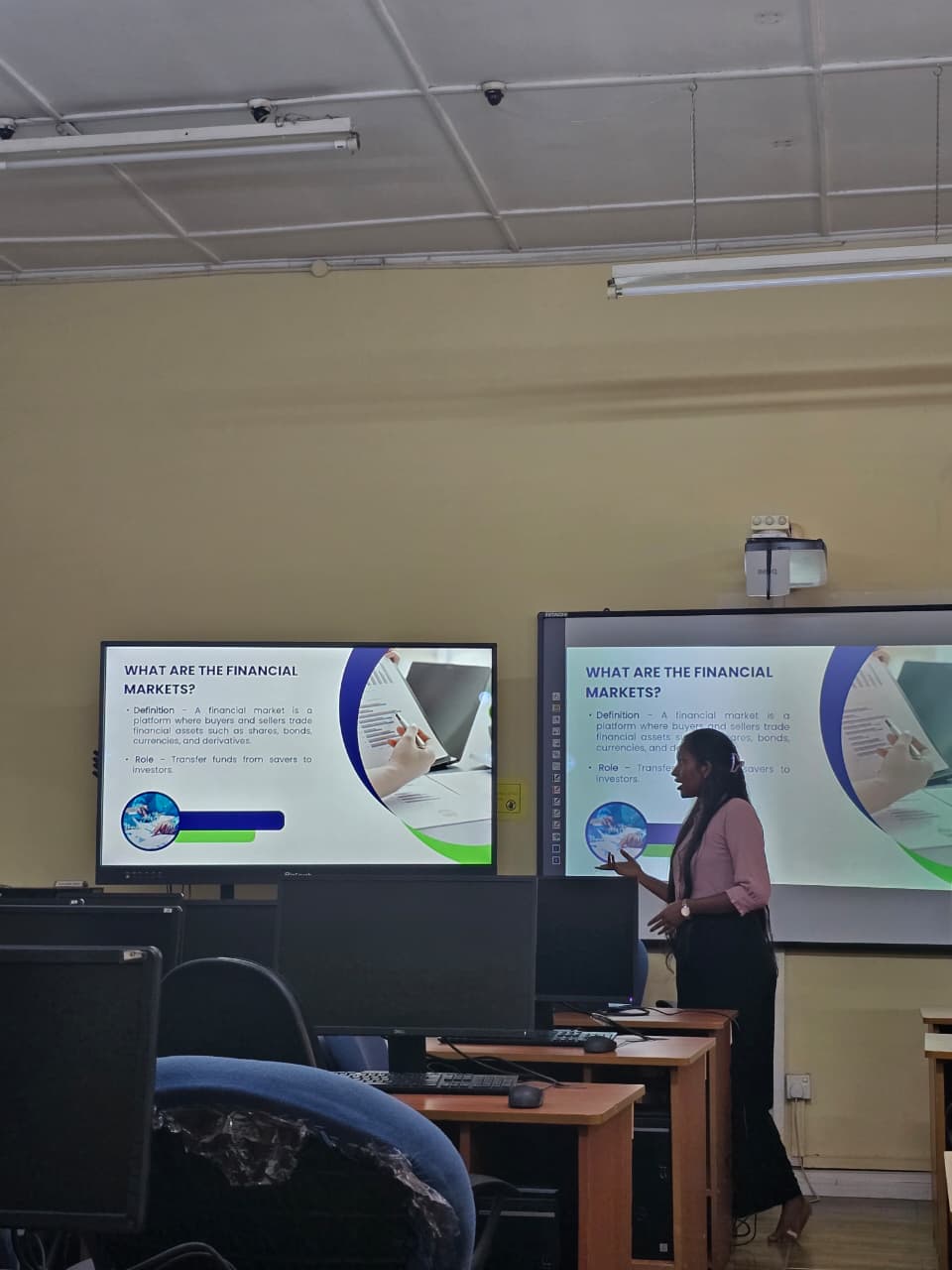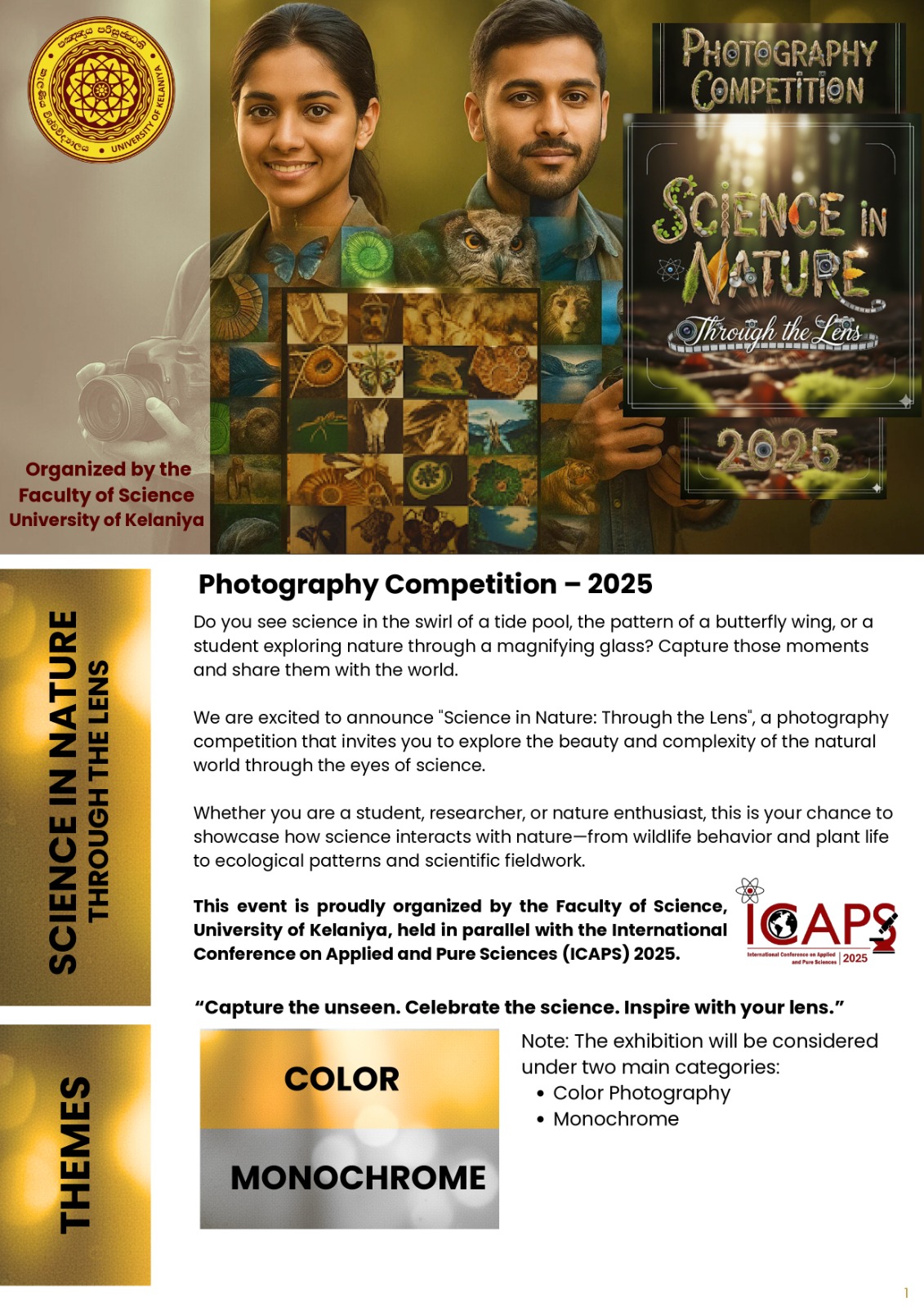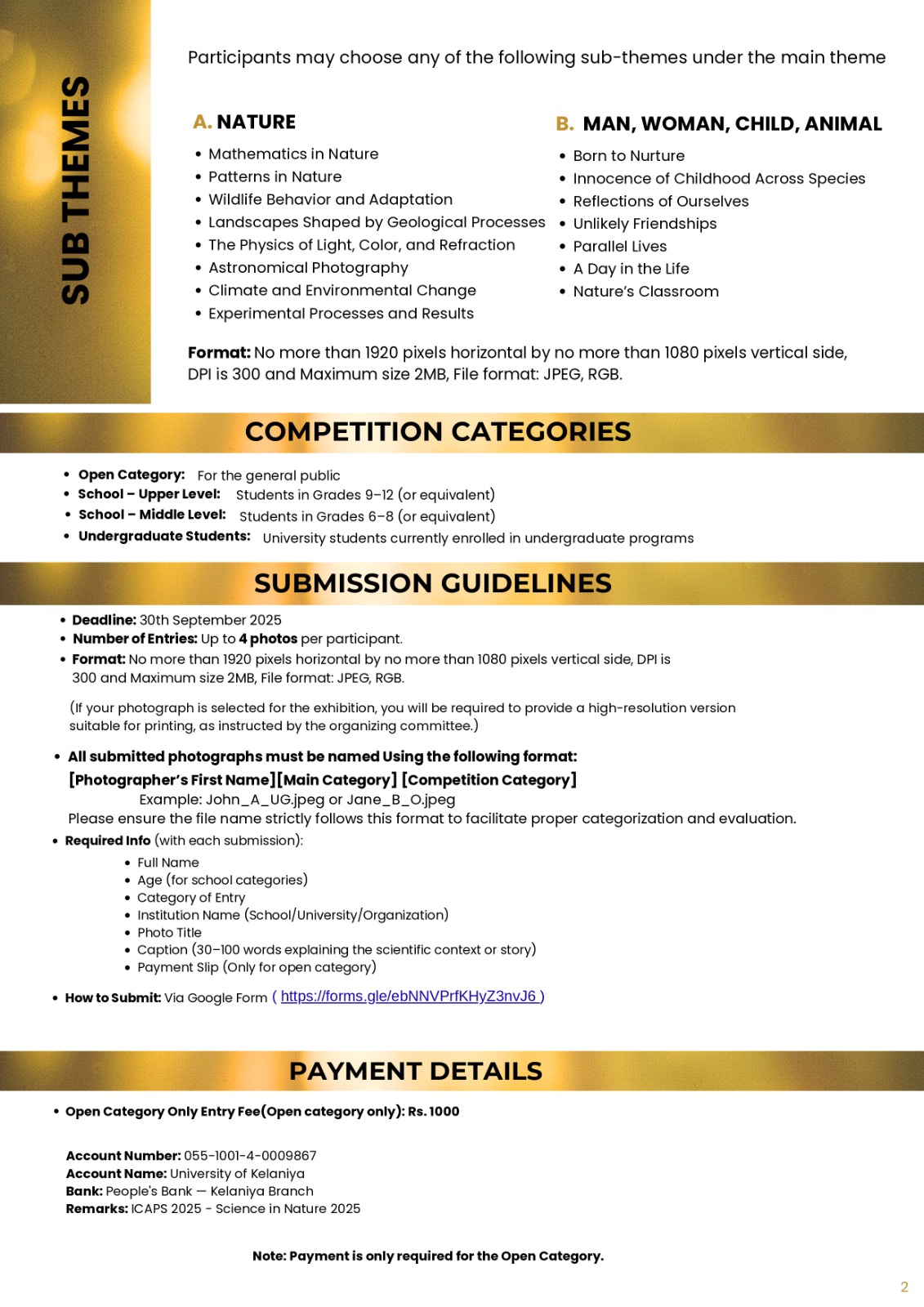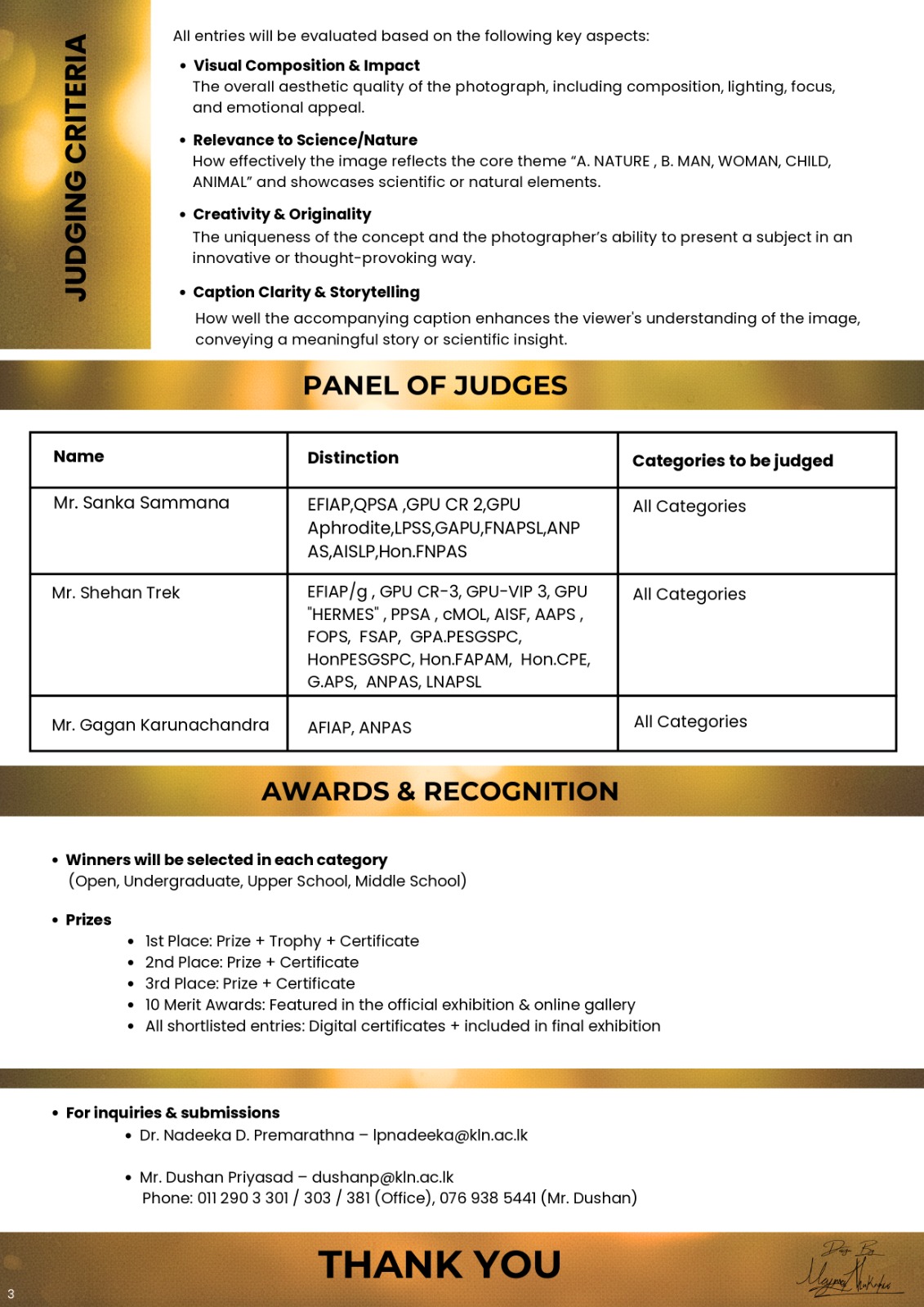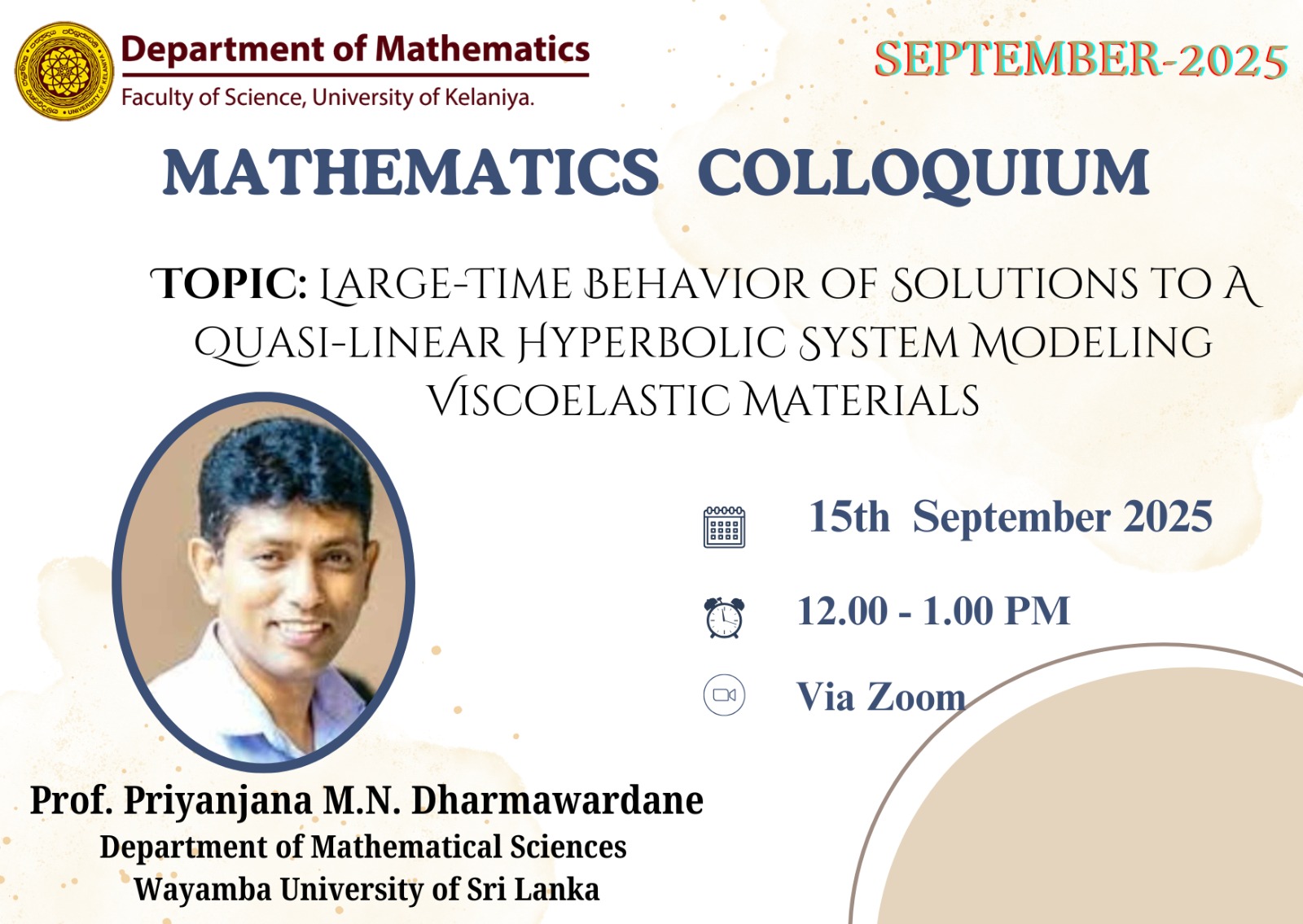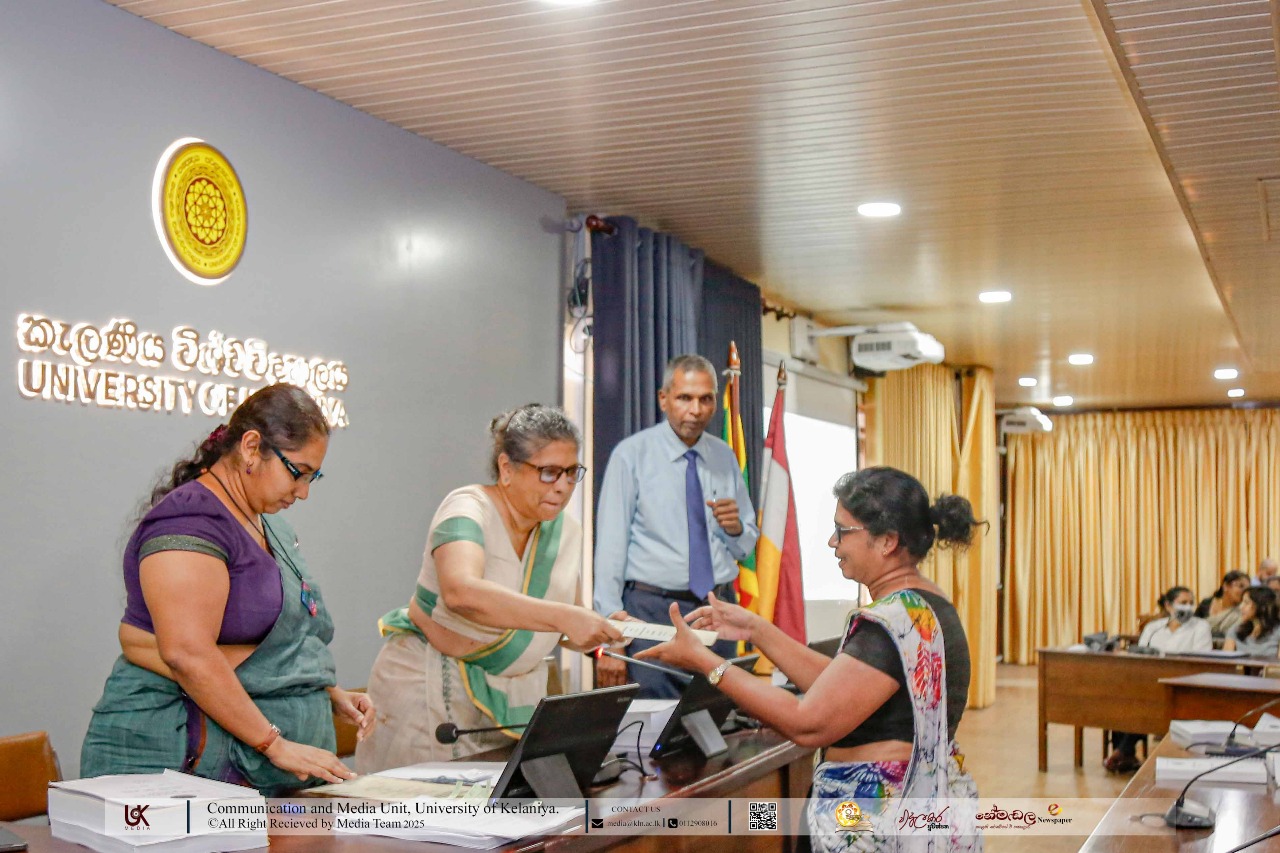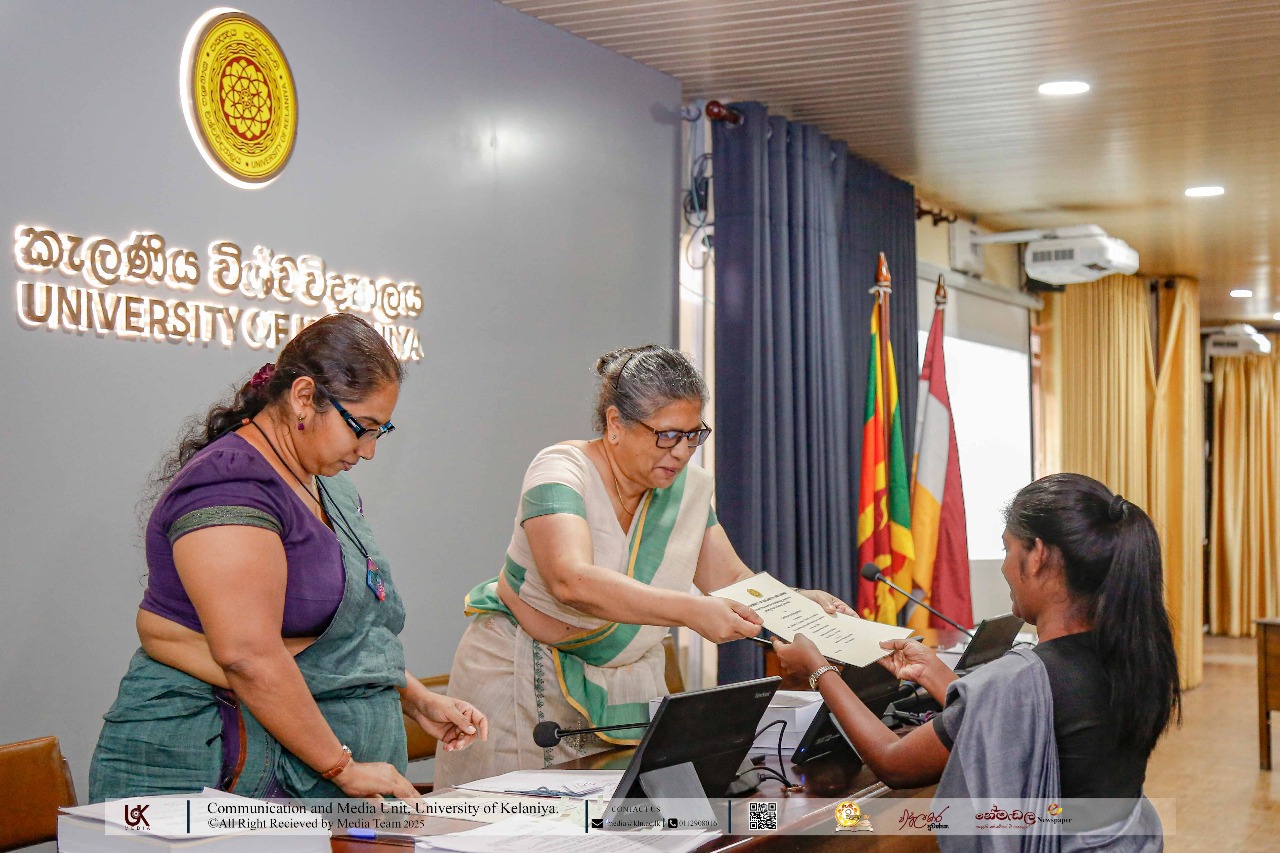We successfully concluded a series of insightful oral presentations under the Mathematics for Finance II course module AMAT 32343 at the University of Kelaniya.
This session provided an excellent opportunity for students to bridge theoretical concepts with real-world financial applications — fostering analytical thinking, teamwork, and presentation skills.
💡 Students were divided into 10 dynamic groups, each exploring a key area in finance, including:
📊 Stock Market
💹 Financial Derivatives
📈 Portfolio Management
🏦 The Role of the Central Bank in Investments and Financial Stability
💼 Behavioral Finance and Investor Psychology
💱 Derivatives and Hedging in Portfolio Management
📉 Risk and Return in Investments
📃 Mutual Funds, ETFs, and Alternative Investments
🏛 Stock Exchanges and Trading Mechanisms
🌐 Financial Markets and Their Role in Economic Growth
It was inspiring to see our students demonstrate strong enthusiasm, creativity, and deep understanding of financial concepts. The session also encouraged engaging discussions, critical analysis, and collaborative learning among peers.
👏 A big thank you to our lecturer for guiding and motivating the students throughout the process, and to everyone who contributed to making this event a success.

